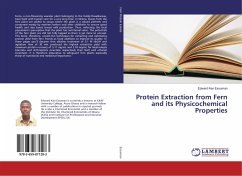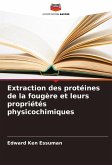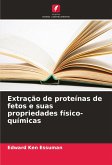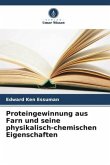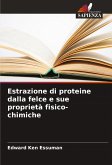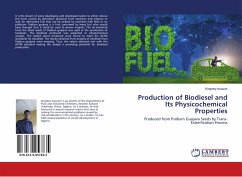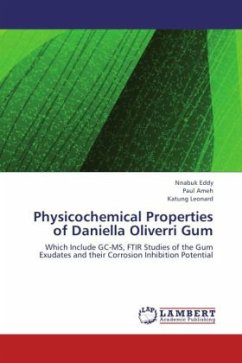Ferns, a non-flowering vascular plant belonging to the family Davalliaceae, have lived with human race for a very long time. In Ghana, leaves from the fern plant are added to soups where the plant is a valued potherb and consumed mostly by mothers before and after childbirth to ensure good health and also boost breast milk production. Thus, reflecting the local population's perception that the plant has nutritional value. The potentials of the fern plant are still not fully tapped as there is yet more to unravel. This book, therefore, unveils the techniques for extracting and optimizing protein yield from fern fronds as food additives to improve its quality. In these pages you'll discover that alkaline treatment of 0.1 M NaOH and agitation time of 30 min produced the highest extraction yield with maximum protein recovery of 5.11 mg/mL and 2.03 mg/mL for Nephrolepis biserrata and Arthropteris orientalis respectively than NaCl and ethanol treatment. It is therefore imperative to safeguard fern plants especially those of nutritional and medicinal importance.
Bitte wählen Sie Ihr Anliegen aus.
Rechnungen
Retourenschein anfordern
Bestellstatus
Storno

